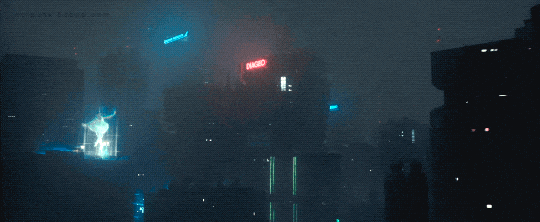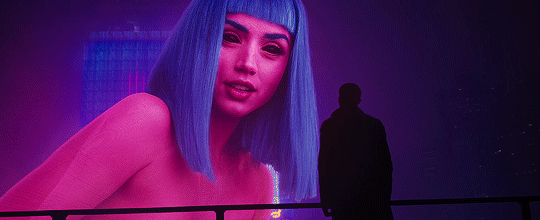Blade Runner 2049 is Warning Us To Stop Consuming… Here’s Why. (A Review)
Written by: @benjiikins
Denis Villeneuve’s 2017 dystopian sci-fi film, ‘Blade Runner 2049,’ serves as an outstanding successor to Ridley Scott’s 1982 original cult classic.
Set in a dystopian Los Angeles, the film surpasses expectations with its visually stunning portrayal of a decaying metropolis. Towering skyscrapers and bustling streets create an overstimulating backdrop, painting a vivid picture of a post-World War 3 world left in ruins.

In this grim reality, two groups co-exist: humans, and replicants (which are androids that are indistinguishable from humans, with superior physicality and intelligence). Replicants, however, are viewed as mere products, designed for slave labor until their (human) owners are deceased.
The central character, Officer K, a Blade Runner tasked with tracking down and “retiring” old model replicants (by shutting down their systems permanently), becomes our guide through this dark and morally ambiguous world. Despite the bleakness surrounding him, K embarks on a personal quest to uncover the purpose of his existence and confront his own sense of identity. This exploration of self-awareness and the existential nature of life adds a constant undercurrent of poignancy to the film.'

One character that significantly contributes to the movie’s depth is Joi, a holographic companion to K. In a poignant scene, Joi notices K’s loneliness and offers to alleviate it, highlighting the ease with which technology provides instant gratification, including access to sexual experiences without the need for emotional connection or effort.
This portrayal shines a light on the damaging consequences of promoting sex as a readily-available commodity, catering to the temporary satisfaction that numbs the pain of loneliness. Blade Runner 2049 also exposes the darker aspects of the world it depicts, openly acknowledging the promotion of pornography as a product aimed at catering to the needs of lonely individuals like K. This unflinching portrayal underscores the societal repercussions and emotional toll of such rampant commodification.

The film expertly crafts an ultra-advanced, urban purgatory drowned in excess and corporate greed. Conglomerate corporations prioritize profit over morality, evident in their relentless sale of new replicants and A.I companions, like Joi. This setting reflects a society oblivious to its own moral degradation, where flashing lights and product placement dominate, creating an environment of moral ambiguity and ethical bankruptcy.
In conclusion, Blade Runner 2049 is a visually mesmerizing and thematically profound sci-fi masterpiece. Denis Villeneuve successfully captures the essence of the original film while expanding upon its themes of identity, humanity, and societal decay.
The thought-provoking exploration of the line between artificiality and consciousness, coupled with the exceptional performances and breathtaking cinematography, makes Blade Runner 2049 a greatly influential masterpiece that has greatly inspired my works. Additionally, the film’s critique of the commodification of intimacy and the damaging effects of loneliness, hyperconsumerism, and pornography provides a poignant reflection on the darker aspects of our own society, and how it could possibly evolve into, in the near future, with conglomerates calling the shots on how power is used and enforced on the people, instead of a formulated, and systemic government that governs in recognition of a democracy; something that may diminish as we go further into the internet and technology age.

Will corporations have the ultimate power, while governments fall, and cease to exist?
This movie is a warning to humanity, about how we let technology & media manipulate our lives.
So don’t stare at your screen too long. It’s Medusa.
PAID FOR AD WITH $READ
This is not an endorsement, is not financial advice, and SolRead has no connection with the project being advertised. Want an ad in our next article? Visit our Publish tab.
